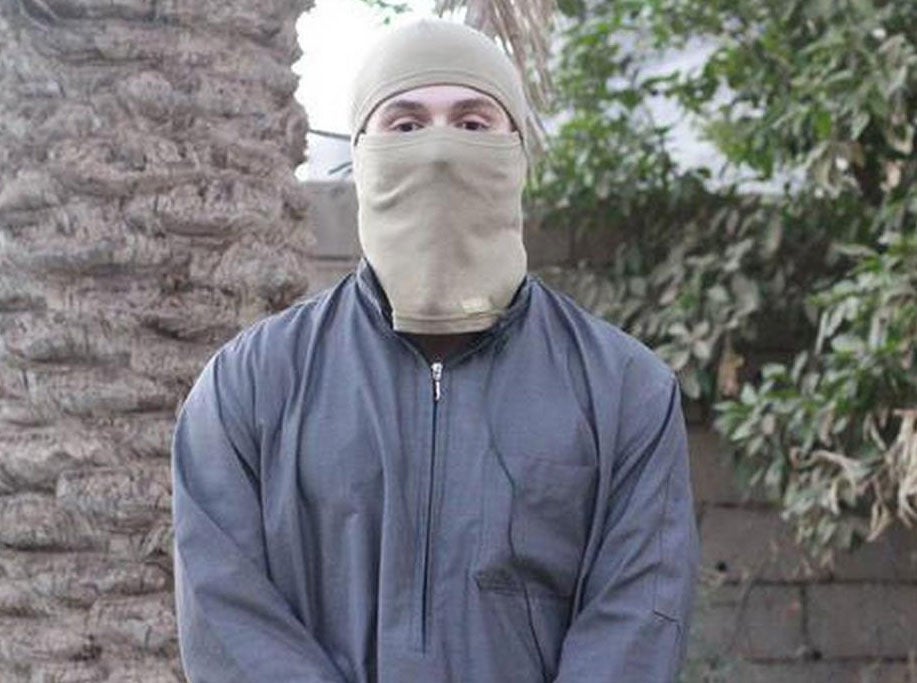Isis: 'White Briton' was part of suicide attack on Iraqi city of Ramadi, unconfirmed reports say
Militants seize city in western Iraq and defending soldiers fear a massacre

Your support helps us to tell the story
From reproductive rights to climate change to Big Tech, The Independent is on the ground when the story is developing. Whether it's investigating the financials of Elon Musk's pro-Trump PAC or producing our latest documentary, 'The A Word', which shines a light on the American women fighting for reproductive rights, we know how important it is to parse out the facts from the messaging.
At such a critical moment in US history, we need reporters on the ground. Your donation allows us to keep sending journalists to speak to both sides of the story.
The Independent is trusted by Americans across the entire political spectrum. And unlike many other quality news outlets, we choose not to lock Americans out of our reporting and analysis with paywalls. We believe quality journalism should be available to everyone, paid for by those who can afford it.
Your support makes all the difference.A wave of suicide attackers who paved the way for an Isis advance into the Iraqi city of Ramadi included a white Briton, according to unconfirmed reports.
Isis announced the death on one of its media channels, naming the British bomber as Abu Musa al-Britani and issued a picture of the young man in a balaclava mask. Many British jihadists take the al-Britani name, and the dead man’s identity is unknown.
The Foreign Office was unable to confirm the involvement of a Briton in the suicide attack, but at least 600 Isis fighters are estimated to have travelled to the Middle East from Britain.
Six men were reported to have taken part in the suicide attack, driving car bombs that detonated with devastating impact and opened the way for Isis militants to raise their black flag over the local government compound. Isis claimed victory over mosque loudspeakers after overrunning most of Ramadi, the provincial capital of Anbar.
Fierce fighting continued yesterday in parts of Ramadi, 60 miles west of Baghdad, and government forces were still in control of a military command centre to the west of the city.
If Ramadi were to fall completely to Isis it would be a strategic blow to Prime Minister Haider al-Abadi’s government, only six weeks after the army and Shia militias took the city of Tikrit from the self-appointed “Islamic State”.
“The situation in Ramadi is dire, but the city has not fallen and the battle against criminal Daesh [Isis] is still ongoing,” Anbar governor Sohaib al-Rawi said on Twitter.
An army major whose regiment is positioned near the Anbar operations command described the situation as critical and said the militants had taken control of the only major supply route into the city.
Most army and police units have retreated to the area around the operation command to protect it, he said, but some elite counter-terrorism forces are “fighting for their lives” in the Malaab district of central Ramadi.
“If the government does not send any reinforcements and the coalition air force does not rescue us, I can confirm we will lose all Ramadi by midnight,” the major said. “A massacre will take place and all of us will be slaughtered. We have been defending the city for months and we don’t deserve to end like this. It’s humiliating.”
Ramadi is one of a handful of towns and cities in Anbar to have remained under government control. The rest of the vast desert-province bordering Saudi Arabia, Syria and Jordan is held by Isis. The militant group said it had stormed Ramadi’s government compound and taken control after “eliminating the apostates” who remained inside.
The offensive began in the early hours of yesterday, with the militants using an armoured bulldozer to remove blast walls blocking the road to the main police station and regional government compound. Reuters
Join our commenting forum
Join thought-provoking conversations, follow other Independent readers and see their replies
Comments